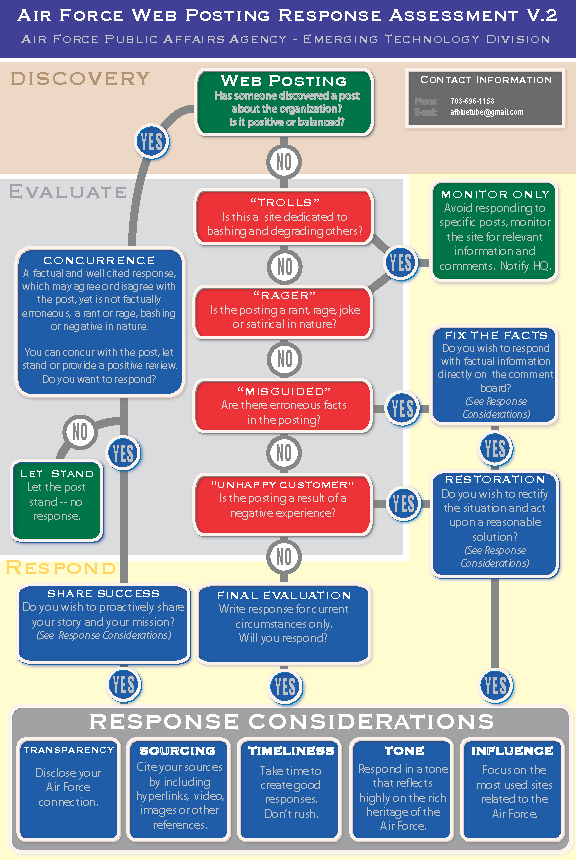Some years ago, the US Airforce Public Affairs Agency released a handy process that could be followed when responding to social media responses. It’s still a great tool to guide social media, communications managers and business owners. But more importantly, it’s a tool that we can use as individuals.
There is one tried and tested rules – simply don’t feed the trolls. But if you find yourself being triggered by a comment:
- Don’t engage: Trolls want attention, so the best way to deal with them is to ignore them. Don’t respond to their comments or messages and don’t give them the satisfaction of knowing they’ve gotten to you.
- Report them: If the troll’s behaviour is abusive, threatening or violates the social media platform’s community guidelines, it’s important to report their account. This can help prevent them from harassing others in the future. Of course, platforms are uneven in their responsiveness.
- Stay calm and composed: Trolls thrive on conflict and drama. Don’t get into heated arguments and try to remain calm and composed. Responding with kindness and empathy can also help defuse the situation.
- Use humour: Sometimes, responding to a troll with humour can be an effective way to shut them down. It can also help lighten the mood and prevent the situation from escalating.
- Block or mute them: If the troll continues to harass you despite your efforts to ignore them, block or mute their account. This will prevent them from being able to contact you or see your posts.



